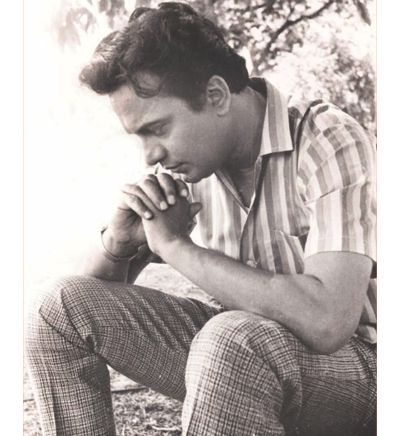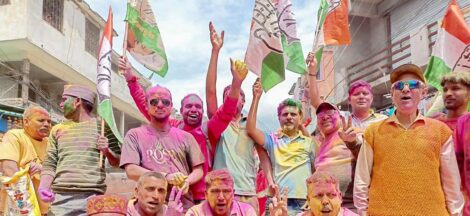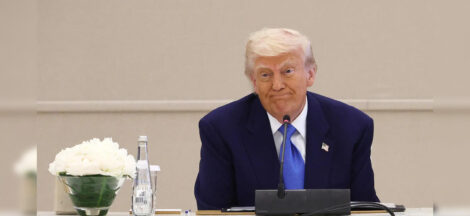By Tirthankar Mitra
Born in a house in Ahiritola in the heart of north Kolkata on September 3, 1926, and growing up in a middle class joint family household in Bhowanipore, Arun Kumar Chattopadhayay did not quite stand out in a crowd when he first sought to essay the role of a silver screen hero in Tollygunge film studio. Flops and failures almost grounded his acting career almost before it had taken off and it was his grit and luck which transformed him into Uttam Kumar, whom almost every person watching him perform in the darkness of a cinema hall wanted to have as a member of his/her family.
Four decades after Kumar’s passing on a July day, this is arguably the rationale of the magic of his films drawing crowds. A doddering old man and his young granddaughter together with the latter’s not so young parents and the domestic help are still mesmerised watching him perform in a retrospective on the small screen in the family lounge.
If the octogenarian was reliving his days when he stood in a queue in front of a movie theatre under a blazing sun to fetch tickets of Uttam starrer Basu Paribar for his family, the young woman was drawing comparisons between her beau and the way the matinee idol rode a motor cycle with a beautiful Suchitra Sen on the back seat of the two wheeler in Saptapadi. The middle aged couple relived the day when they first sat holding hands in the darkness watching Uttam romance Supriya in Sabarmati, the woman who had rushed before the television set after making the afternoon tea marvelled how she would have felt walking beside the prince charming in Harano Sur.
What these persons watching Uttam Kumar wide-eyed are unaware that they are watching a real life character they would like to meet in their everyday life. For the people who watched Uttam Kumar portraying a role on screen big or small even on his 97th birth anniversary which passed by recently are aware that the characters he enacted had a core of truth in them.
A magnetism flowed from Uttam Kumar’s persona on the screen and away from it. It made him a big draw on stage and soirees and of course the large groups of young men and women awaiting to catch a glimpse of the man, the only one to be dubbed Mahanayak (the great hero) as his car rolled into a studio.
Uttam Kumar was a self taught professional who was always at ease establishing the credentials of the roles he was enacting. Be it a tough in Kuhak whose dagger was kept in a sheath shaped as a deity or the caring elder brother in Dui Prithibi who would not hesitate to beat up a younger sibling going wayward, he slipped into the roles effortlessly.
The characters of a matinee idol and a sleuth differ from each other as chalk is to cheese. Yet it was none other than Satyajit Ray who had unhesitatingly cast Uttam Kumar in the lead roles in Nayak and Chiriakhana.
Uttam shone in both roles in a manner leaving later day efforts to clone his twin roles to look as curious caricatures. In fact, such was the height of perfection in essaying the role of a matinee idol in Nayak who is too aware that a few flops can relegate him to the bottom of the ladder that even the hard taskmaster Ray who did not usually lavish his praise said “I can detect some faults in my direction but there are no faults in Uttam’s performance.”
Young movie buffs accustomed to international acting standards thanks to the screening of film festivals marvel at the range of Uttam Kumar’s histrionics to this day. Saptapadi, Sesh Anka, Aparichita, Jhinder Bandi, Nagar Darpane, Harano Sur, Antony Firingee, Uttarayan, Stree, Bhranti Bilas to name a few speak for themselves.
It was Uttam Kumar’s mere presence that mattered. Though he was aware of this fact, it did not go to his head. Small wonder, when a beautiful co-actress whose pairing with Uttam Kumar never failed to produce a hit demanded that her name precede the matinee idol’s in the posters and bill boards, he unhesitatingly agreed. “After all, people flock to the theatres to see her face.” he said.
Ray described Uttam Kumar to be an “instinctive actor”. Rightly so, as he could get into the skin of characters sans much prodding from directors. Lacking an earnest well wisher or a capable secretary, Uttam Kumar was ill advised in his choice of films. Chhoti Si Mulaqat, his ambitious misadventure in what was then called Bombay is a pointer to it.
The disaster put a question mark on his Midas touch. But fortune smiled and Uttam Kumar recovered his professional stature and financial standing and a double version of Amanush making the Hindi speaking audience giving him a belated ovation.
Yet the bombing of Uttam’s a maiden venture in Bombay kept him on tenterhooks thereafter. His shortcoming was that he was not like Rajnikanth who embraced the years nor was he like M G Ramachandran or N T Rama Rao who combined their success in films with political ambitions.
Till his last day, Uttam Kumar remained Bengali films’ most bankable asset. He carried on his shoulders the fate of not only his own films but also the Bengali film industry. Uttam acted in many films for money which he did not like, He knew that his acting talent was not being properly utilized, in his last years, his hunger for challenging roles grew. He got some like Agnishwar but he was not satisfied. He did not want to grow old and fade out, His wish was fulfilled. He breathed his last only at the age of 54 when he was still at his prime. To the Bengalees of all generations, he remains the same smiling Uttam Kumar, the unputdownable Mahanayak. (IPA Service)




 Puthuppally Bypoll In Kerala: No Cakewalk For Congress
Puthuppally Bypoll In Kerala: No Cakewalk For Congress 